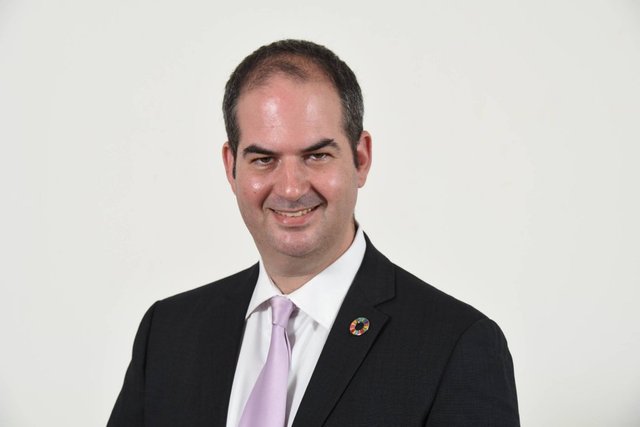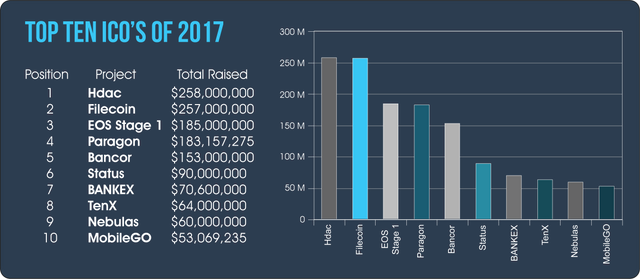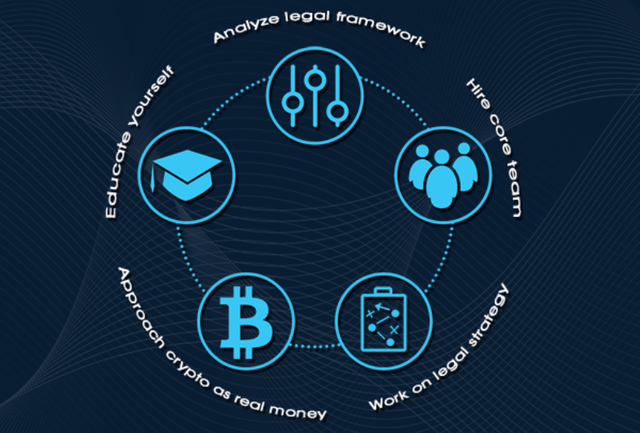CoinPoint Group engaged legal specialists interested in foreseeing and defining valuable and practicable legal approaches necessary for mass crypto adoption worldwide. We see the legal side of the subject as an important part of the process of making the crypto community understand better how blockchain can help shape the future.
The evolution of the market is fast-paced, so we are turning to legal experts to get valuable insights with respect to legalities relative to the industry. The professional legal information that they provided are of great help to the fulfillment of the cause of this undertaking.

Introducing our interviewees, whose legal influence is pushing the industry’s flow in the right direction.
David Gzesh, Gzesh Law, Ltd.

David has been advising firms and entrepreneurs in the crypto ecosystem since 2012, including investors, firms/merchants active in crypto-payments, game developers, and other prospective use cases which seem interesting projects.
Dean Steinbeck, Crypto Law Insider

Dean Steinbeck, managing director of Crypto Law Insider and general counsel at Horizen (formerly ZenCash), is a leading authority on legal issues related to cryptocurrency and blockchain technologies.
Dean is a US corporate lawyer with a focus on data privacy and technology and over 15 years of experience representing VC-backed software development companies. His experience gives him an in-depth knowledge of the legal intricacies within blockchain technology, data privacy, intellectual property, venture capital funding and regulatory compliance.
Jimmy Nguyen, CEO at nChain group

Jimmy is a former lawyer and now a business executive at nChain, the global leader in research and development of blockchain technologies. Before joining nChain, he was an IP & digital technology lawyer for 21 years, and a partner at 3 major U.S. law firms. Jimmy has quickly become a prominent voice in the cryptocurrency world, especially for Bitcoin Cash.
Tal Itzhak Ron and Stephanie Attias, Tal Ron, Drihem & Co., Law Firm

Advocate, Certified Computer Scientist and Notary Tal Itzhak Ron (LLB, B.SC., M.Sc.) — a General Member of International Masters of Gaming Law (IMGL), practicing i-Gaming and Financial Entertainment. Tal graduated from Haifa University School of Law (LL.B.) and Faculty of Computer Science (B.Sc.), and while working as a software developer at a publicly-traded software company, Ness Technologies has further obtained a Master’s Degree in Computer Science from Bar Ilan University. Tal established Tal Ron, Drihem & Co., Law Firm back in 2003, focusing from the start on Hi Tech, Ad Tech, M&A, Financial Entertainment and iGaming industries, quickly becoming one of the first international firms practicing solely on these areas. The firm today advises the world leading operators, platforms and governing bodies and is considered the first point of contact for entrepreneurs setting up businesses in the Crypto, iGaming, Ad Tech and Mobile App industries.
Ms. Stephanie Attias (LL.M, LL.B) graduated from Fordham University School of Law (New York), with an LL.M in “Banking, Corporate and Finance Law”, and from the Faculty of Law in Nice (France) with a Master of Laws in “Business Law and Economics”, followed by a Master of Finance in “Financial Engineering” obtained with Magna Cum Laude Honors. After working at the U.S. Securities and Exchange Commission (SEC) in New York and in the prestigious law firm of Gide Loyrette Nouel, both in London and Paris, Stephanie joined Tal Ron Drihem & Co., Law Firm in 2012 as Head of Financial Law and Regulation, where she has been advising the top tier of Crypto, Financial Technologies and Gaming Companies together with the firm’s CEO and Chairman, Tal Itzhak Ron. She is a sought-after speaker, in events of the online gaming and finance industries, delivering presentations in major conferences in Israel and around the world, notably relating to data protection laws.
Ziv Keinan, KKLaw

We are U.S.-Israeli Law offices, our offices are located in Tel Aviv and New York. We focus on Security Token issuers, exchanges, issuance platforms and also advise institutional investors coming into this space. Ziv advises his clients on regulatory matters, including compliance with Privacy and Securities regulations, Know Your Customer (KYC) and Anti Money Laundering (AML). Ziv has been advising public traded companies and advising IPO for over ten years and is fluent in Securities laws applicable to Crowdfunding and Cryptocurrencies. Ziv holds a Master of Laws (LLM) Degree and a B.A Degree (cum laude) he is a graduate of Microsoft Ventures TMBA program and is GDPR-f certified.
So, now that we have all our participants introduced, let’s get down to business and see how they envisioned the legal application into practice.

CP: The crypto market is moving forward very fast. In different jurisdictions, there are different legal limitations alongside opportunities. Which countries do you see the best locations to run crypto-related businesses like mining, trading, and development? Why are these places the best in your opinion?
Dean:
There are a number of different countries open to crypto-related businesses. Obviously countries like Malta and Switzerland are actively encouraging crypto-related businesses to operate there. But even countries like Canada are warming up to crypto. I think pro-business governments around the world realize that crypto is the next big thing and they all want a piece of the pie.
The primary reason we’ve seen fewer jurisdictions actively open their arms to crypto-related businesses is that most countries fear US regulators and do not want to take any action that might jeopardize relations with US financial institutions. This has resulted in most jurisdictions taking a wait-and-see approach.
Unfortunately, there is no single “best” jurisdiction to launch a crypto-related business as what’s best for you will depend on what you’re trying to accomplish. Some jurisdictions will be better for businesses like exchanges or wallets whereas others will be better for launching an ICO. There are too many factors to consider except on a one-by-one basis.
Tal and Stephanie:
Currently, some of the best locations to run crypto-related businesses are Estonia, Malta, Switzerland, and Gibraltar. While Switzerland is seen as the “Cryptonation” and one of the top European countries to start a blockchain-related business, Estonia is one of the countries with the highest internet penetration rates in the world, including an e-residency program, Bitcoin ATM’s since 2015, and Malta has become the first jurisdiction to adopt a regulatory framework on DLT, Blockchain and Innovative Technology.
Indeed, on June 26th 2018, Malta took a new regulatory approach by evaluating the technology described in the white papers of operators interested in coming to Malta to launch ICOs. This is a regulatory innovation in the crypto industry! Malta adopted three laws: the Malta Digital Innovation Authority Act, which establishes the Malta Digital Innovation Authority and certifies DLT platforms, the Innovative Technology Arrangements and Services Act, which concerns the setting up of exchanges and other companies operating in the cryptocurrency market, , and the Virtual Financial Assets Act, which sets up the regulatory regime governing ICOs, cryptocurrency exchanges, and wallet providers.
The final choice is up to your personal preferences, business goals, and legal counselling, but all of the jurisdictions listed above also offer preferential tax programs and will help you set up a regulated crypto business according to your needs.

Jimmy:
Some top jurisdictions for cryptocurrency businesses are Japan, Singapore, Switzerland, and the United States. Those countries have cryptocurrency exchange environments which enable businesses to convert cryptocurrency to fiat currency (albeit with limitations), increasing recognition of cryptocurrency through legislation or regulatory guidance, and growing technology ecosystems for cryptocurrency.
In addition, Malta has been active at promoting itself as a friendly place for cryptocurrency and blockchain businesses.
And do not forget Antigua & Barbuda; while it is a small Caribbean island nation, it has big cryptocurrency ideas, such as a Citizenship by Investment Program with Bitcoin Cash.
CP: One of the main engines in 2018 is the ICO market. But lately, it looked like it is about to lose its hot air in the crypto ecosystem. Considering different factors, how do you see the ICO market several months from now or a few years from now? What you think made this niche so big recently? And what do you think made such niche lose its power in the last weeks so fast? Or do you think differently?
Tal and Stephanie:
The fact that any person can start an ICO facilitates the occurrence of frauds and scams. According to certain reports, up to 80% of ICOs are nothing but a blatant scam, while only around 8% can be called real projects. Billions of dollars were lost due to ICO scams, and this has significantly weakened the trust of investors in the current industry.
Secondly, the ICO industry still faces many security vulnerabilities from hackers, as well as regulatory uncertainties which altogether have created a weak climate for ICOs. While some countries like India adopt a strict ruling on ICOs and cryptocurrencies, other countries like Malta or Estonia decided to favor this industry. Due to such lack of certainty, startups and investors are currently questioning the validity of ICOs.
With a more structured regulation, which would increase investor confidence, ICO’s could have a future, but since crypto valuations are largely based on the anticipated rate of future adoption and immediate windfalls, it seems as though cryptocurrencies are facing a downfall if no changes are made to increase investor confidence.

Jimmy:
ICOs skyrocketed in 2017 and early 2018 because they were an easy — and misleading — way for supposed cryptocurrency businesses to raise money, without having to actually build any product. The ICO market has rightfully cooled off once government agencies (especially the SEC in the United States) issued warnings and then began taking action against token offerings that are actually unregistered securities.
Over the next few years, we should see fewer ICOs, but better ones which are done correctly and in compliance with securities law. Furthermore, while the vast majority of prior ICOs were done on Ethereum (using ERC-20 tokens), expect to see future ICOs (and tokens generally) increasingly done on Bitcoin Cash as token solutions are now emerging for the BCH blockchain.
Ziv:
I don’t see any future for ICO Market. The market has matured and now is the time to take all the good things that ICO has thought us and to apply it to the traditional regulated securities market. The potential is huge with institutional investors waiting to take part in this market.
CP: When a blockchain start-up is established and is looking for the best legal advice to begin with, what is the best advice you can give?
David:
I think the need for “best legal advice” begins long before a blockchain start-up is already established. Legal parameters will likely impact the business vision/plan, a lot of time is wasted when legal parameters are ignored. So many opportunities exist because of the legal constraints on business activities, it may be that an unmet need is being ignored. Conversely, poor or no legal advice may blindly support a mistaken vision if real constraints are simply denied in wishful thinking.

Dean:
This clearly depends on what the business is looking to accomplish. However there are a lot of standard do’s and don’ts a startup should follow. They definitely need to hire legal counsel they trust and consider part of the team.
Tal and Stephanie:
We advise blockchain start-ups even before their establishment. We start by analyzing the start-up’s strategy and goals in order to advise on the best legal incorporation set-up. We will also help start-ups obtain any required regulations as applicable on a case by case basis.
CP: There are now a lot of blockchain solutions for real estate, investments, server’s security, personal data monetization, and more. In what way do you see (or want to see) blockchain solutions being put into practice in your daily legal work? How do you think will this technology help your business?
Dean:
Like all consumers, I want to see any technology that will help me do my job better and/or easier. There are several blochchain startups focused on the legal profession at the moment. From my perspective, I think those that remove accounting, billing and collection via smart contracts offer tremendous promise.
Ziv:
Real Estate, VC funds and solar is a great example of tokenization of securities. In the future every lawyer will have to understand how tokenization works in order to establish a correct governance of the project.

Tal and Stephanie:
The fundamentals involved in blockchain technology consist of concepts such as: encryption and pseudonymisation. Such concepts are actually encouraged by laws such as data protection laws. If regulators catch up with technology fast enough, they could actually recognize the role that Blockchain could play in maintaining data protection via real-time peer to peer systems.
Blockchain technology could also help with KYC and AML procedures, by allowing each party in the chain to check the validity of such documents before they are accepted in the chain.
CP: The offering of courses that cover crypto and blockchain technology in leading law school’s syllabus is not new anymore. What particular topics you believe must be included in order to prepare aspiring lawyers deal with legal matters concerning the crypto market?
Jimmy:
Law schools should teach about securities law as applied to cryptocurrency; civil procedure and jurisdictional questions with companies that operate on blockchains and distributed ledgers; in a smart contracts environment, how agreements are formed and dispute resolved. And let’s not forget a course about Bitcoin!

Dean:
Like nearly all businesses, crypto-related businesses touch many legal areas. Securities law, tax, employment, intellectual property, contracts and litigation are just a few. To be a good crypto lawyer, you must be generally familiar with the topics that arise during the course of your clients’ day to day operations. I think law school curriculum likely over emphasizes securities law issues and neglects less “sexy” issues like what decentralized governance means for corporate officers and directors.
Tal and Stephanie:
In our opinion, particular topics which should be taught include: secure computing systems, the legal implications of blockchain’s distributed ledger technology, cryptocurrencies, decentralized applications, and “how to create smart contracts”.
Seeing as Blockchain combines theory and practice, a collaboration between the school’s computer science, business, and law schools would be the best option. Especially since law and technology go hand in hand nowadays, and students need to adapt quickly to ongoing technological developments.
About CoinPoint Group
CoinPoint is a premium marketing agency founded in 2013. Owned by CoinPoint Group Inc., the agency is now working with a number of all-scale businesses in the crypto space. With a wide range of clientele from cryptocurrencies markets, blockchain, and fintech, CoinPoint has already opened offices in Europe and the Asia-Pacific. With these headquarters strategically positioned, CoinPoint stays on top of the latest trends and innovations across the globe.
Website: https://www.coinpoint.net/
Facebook: https://www.facebook.com/coinpoint/
Twitter: https://twitter.com/coinpointnet
LI: https://www.linkedin.com/company/coinpoint/

These are engaging and cool
Downvoting a post can decrease pending rewards and make it less visible. Common reasons:
Submit